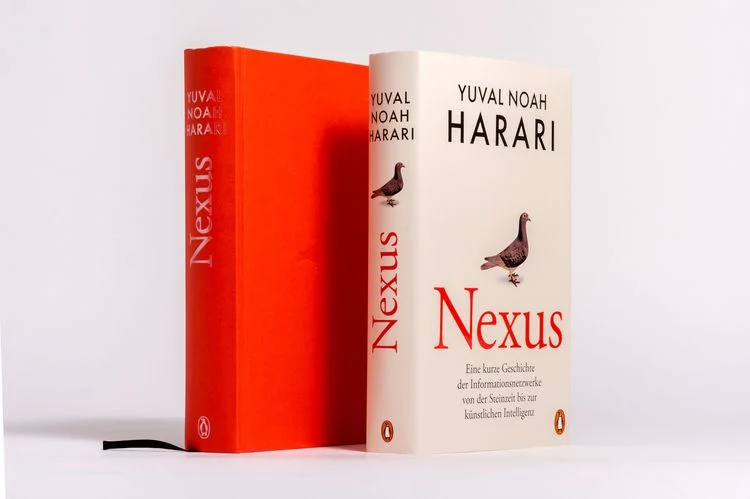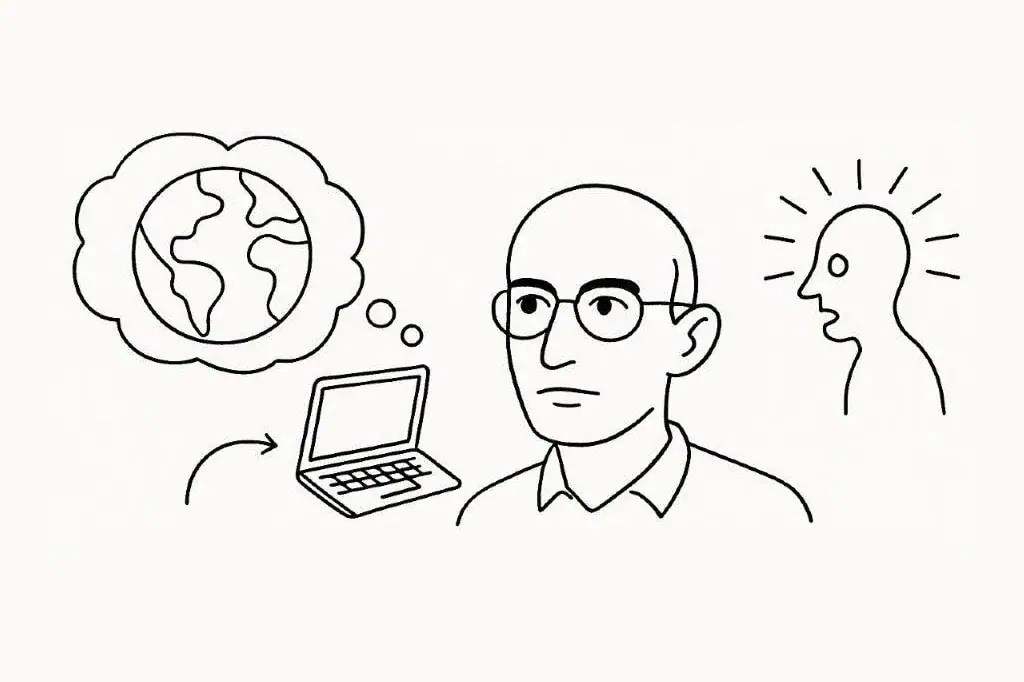Yuval Noah Harari is one of the most influential thinkers of our time. The Israeli historian and bestselling author (Sapiens, Homo Deus, 21 Lessons for the 21st Century) has a unique talent for connecting humanity’s past, present, and future in a clear narrative—and deriving forecasts that should awaken us.
Mini-Biography
Born in 1976 in Kiryat Ata, Israel, Harari earned his doctorate from Oxford University in 2002 and has been teaching history at the Hebrew University of Jerusalem ever since. His books have been translated into over 65 languages and sold millions worldwide. In addition to his academic work, he is a co-founder of Sapienship, an organization dedicated to addressing global challenges such as climate change, technological disruption, and fake news through education and storytelling.

Societal Transformation: Where Are We Headed?
Harari views human history as a series of networks—not made up of wires or computers, but of ideas, myths, and shared stories. These collective narratives allowed Homo sapiens to cooperate in large groups and build complex societies. Religion, nations, money—according to Harari—are “shared fictions” that underpin our civilization.
Today, however, Harari sees a turning point:
- Information networks are no longer passive—they are becoming active, adaptive, and autonomous through artificial intelligence.
- The “Nexus,” as he calls it in his latest book, is a web that not only transports information but also filters, evaluates, and recombines it—often without human intervention.
- This fundamentally shifts power: those who control these networks shape not only public discourse but also the perception of reality itself.
Harari’s central warning: We risk losing control over how our world is interpreted to non-human systems.

Previous media revolutions—such as the invention of the printing press or radio—fundamentally altered societies, but responsibility still primarily rested with humans. With AI, we are entering uncharted territory: algorithms can make decisions independently, generate content, and influence emotions. This has enormous potential for education, healing, and connectivity—but also for manipulation, surveillance, and societal division.
His Latest Work: Nexus
In “Nexus: A Brief History of Information Networks from the Stone Age to AI” (2024), Harari traces the history of these networks—from the earliest cave paintings, through the telegraph, to social media and generative AI. He reveals how each technological revolution has transformed power structures and questions whether we still have the chance to write the rules before technology does it for us.

What Harari Represents
Harari is more than a historian: he translates complex developments into clear, accessible ideas. He advocates for self-reflection and collective responsibility, calls for international regulation of AI, and emphasizes education that enables people to distinguish between information and manipulation. He is convinced that only an informed, critical, and globally connected society can prevent technological advances from undermining democratic values.
Yuval Noah Harari holds up a mirror—not only revealing who we are but also who we could become. The question is not whether our society will transform, but whether we will shape this transformation ourselves or let it shape us.







